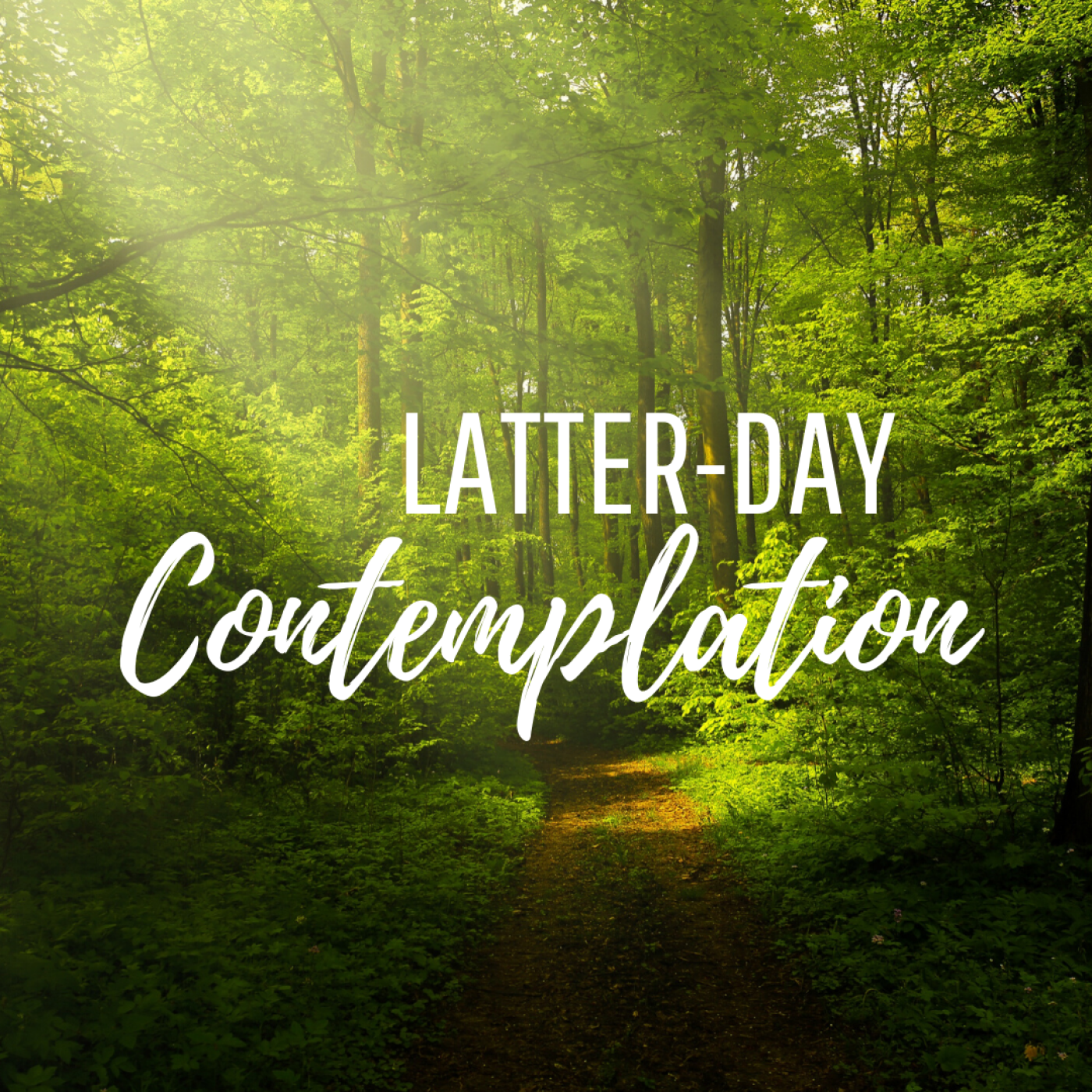-
Episode 5: On Peace
Shiloh and Riley talk on various themes of peace. What part does myth play in both forming our identities and in bringing about peace? Riley and Shiloh use this discussion of myth to dive deeper into an understanding of how the Garden of Eden story is an example of the human journey, as it defines and develops our human experiences that lead us back to experiencing peace through partaking of the love of God. The Savior taught that we must empty ourselves of our natural man through being "poor in spirit," and it is through that experience of "emptying" ourselves that we experience our interaction with Cherubim and a flaming…
-
Episode 16: Helaman 13 – 16
Ben and Shiloh talk about Samuel the Lamanite preaching to and calling the Nephites to repentance. Why did the Lord send a Lamanite to call repentance to the Nephites when they already had Nephi, the prophet, there preaching the same message? The pattern of Samuel’s preaching reflect the same patterns of Abinadi and Alma the Younger, as he preaches the good news and signs of the Savior’s birth. Shiloh and Ben discuss the nature of God in how it relates to Helaman 12:3 and to Samuel’s words of God’s active vengeance. Is there a different way to view God than as an actively vengeful God?
-
Episode 14: Helaman 1 – 6
Shiloh and guest-host Christopher Hurtado talk about the state of Nephite affairs after the official "War Chapters" conclude. Political intrigue, pride in the Church, international conflict, and a failed military bid to regain lost lands find the Nephites at a loss. Christopher and Shiloh discuss myth narratives and find interesting verses that combine the Garden of Eden myth together with the Lehi/Nephi Dream myth in how to become one with God. Nephi and Lehi go out to preach the world of God and follow the pattern set forward by their great-grandfather, Alma the Younger, as the Lamanites repent and become converted to the gospel of Jesus Christ. We see another…
-
Episode 13: Alma 53 – 63
Shiloh and Ben discuss the last half of the War Chapters in the Book of Mormon and question some possibilities that the War Chapters may have been the first thing that Mormon compiled in the Book of Mormon as a young military general. Why and in what way are the Anti Nephi Lehis talked about differently in Alma 53 and 56 than in Alma 26? Captain Moroni is a complicated character that is often quick-to-anger and condemnation, but he consistently expresses a strength of heart and mind to cease bloodshed and fighting mid-battle to let the enemy go free with an oath. After Captain Moroni breaths many threatenings and admonitions…
-
Episode 12: Alma 43 – 52 (Part 2 of 2)
Ben and Shiloh continue their discussion on the first half of the War Chapters in the Book of Mormon. There is a lot to say about the the Nephite narratives and identities in how they view themselves and the Lamanites that frame and contextualize the discussion and that are sometimes taken for granted in analyzing the text. Were there missed opportunities for the Nephites to end war through other non-military means? Were the Nephites always truly expressing the seeming justness of their cause? Did the Nephites always live up to their standards of belief concerning war? Just how much like the Nephites are we today, and can we gain any…
-
Episode 11: Alma 43 – 52 (Part 1 of 2)
Shiloh and Ben begin a preliminary discussion to contextualize the war chapters. They explore the observations for the Lord's stated means of deliverance in Mosiah 7:33, the Lord's standard for "justified" self-defense and warfare in D&C 98, and what it means to go beyond what is merely justified into the realms of what is counted as "righteousness." In Alma 43:47 it states "the Lord has said that: Ye shall defend your families even unto bloodshed." Yet, in this seeming universal command to take up arms to spill the blood of brother's or sister's life in defense of our families, we see righteous examples counter to the popular interpretation of this…
-
Episode 4: How Do You Experience God?
Riley and Shiloh talk about the various ways that we, and others, have experienced God. They explore how the preparation for experiencing God is, in itself, an amazing divine experience, as there are multiple ways that each of us partake of the divine gift of sitting with God. While we often talk in terms of "feeling" the Spirit or God, sometimes we experience God in completely unique ways that aren't within the realms of "feeling," aren't commonly recognized or spoken of, and that sometimes we don't even realize ourselves without careful and intentional self-reflection. Many times in those moments when we recognize those precious and unique ways that God is…
-
Episode 9: Alma 36-38
Ben and Shiloh talk about Alma's fatherly admonitions to his sons Helaman and Shiblon. They talk about clues that Alma leaves us into the foundations of his own testimony, and discuss about the nature of and doctrine of "Christ" as found in these chapters. While we typically talk about the "doctrine of Christ" in general terms as simply the gospel, there is another more nuanced discussion that Shiloh and Ben explore as to what "Christ" is as the archetype of our humanity and what it means to take that name upon ourselves.
-
Episode 8: Alma 32 – 35
Ben and Shiloh continue their talk about the Zoramites, as they explore the concept and principle of faith in Christ. What is the relationship of faith and hope, and how do we regain our hope if we feel that we've lost it? They explore ideas pertaining to experiencing God and of how to develop a relationship with the Spirit. Amulek warns that "this life is the time for men to prepare to meet God," and Shiloh and Ben discuss various transactional and transformational ways of interpreting the meaning of this passage of scripture and how that impacts how we see God, ourselves, and each other.
-
Episode 3: The Born Again Experience
Riley and Shiloh talk about being born again as an emptying that is necessary to being filled with all that God has waiting for us to experience. What is waiting for us when we're able to empty ourselves every day? Is there a way to start over, even emptying our very concepts of God to allow the divine to work within us into something new and wondrous every day? The LDS Bible Dictionary's definition of repentance is "a change of mind, a fresh view about God, about oneself, and about the world." As repentance is a daily process, then we must learn to see God, ourselves, and the world anew…


